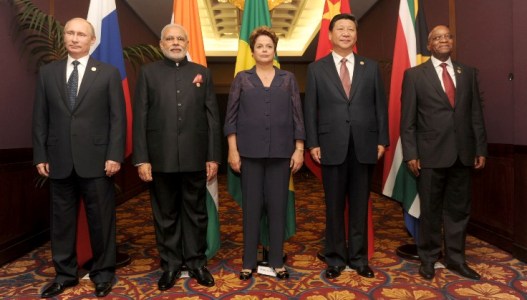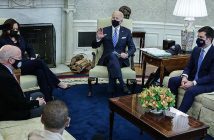Realigning a country’s foreign policy strategy is not a simple exercise. It inevitably comes on the back of some profound analyses and must ideally be accompanied by a wide-angle view.
Prime Minister Modi’s Act East policy, the re-branded and more proactive version of the Look East policy of the past, is one such long-term view taken by the Indian government. It lays out plans for the aspirational Indian economy’s relationship with its most immediate neighbourhood. Act East also serves as a provocative question to traditional western allies such as the UK.
The east of India relationship did require this longoverdue readjustment to keep pace with India’s own growth momentum as well as to ensure its rightful place as a key strategic player in the region.
Towards this end, Prime Minister Modi undertook his high profile visit to China recently. It marked a giant leap to move past issues that have held relations with this neighbouring economic giant captive. China is India’s biggest trading partner with commerce between the two countries totalling $71 billion in 2014. However, the trade deficit has spiralled from just $1 billion in 2001-02 to more than $38 billion in the same year.
As many as 24 pacts were signed between the two countries during the visit. These mark collaboration in the field of trade and commerce to skill development and science and technology to yoga and have truly set the course for a new chapter in South Asia’s history. Not anywhere near a strategic relationship, but still sufficiently comprehensive to establish a much needed course correction. While India and China are often viewed as two giants in constant competition with each other for the world’s attention, I feel it is time to move away from that world view. As our central interview with Mahindra Group CEO, Anand Mahindra, points out India is an IT giant in its own right and its grand Make in India mission should not be seen in the same way as China’s attempt at becoming the world’s low-cost manufacturing hub a few decades ago. Today’s India is on a much higher pegging of expertise and indeed quality to simply be seen as taking China’s place.
This edition of ‘India Global Business’ is therefore themed around this new chapter in a more confident India’s Act East policy. Strategic pacts with countries like the US and Japan in crucial sectors of civil nuclear as well as defence point to an extremely comprehensive approach towards maintain a balance of power in Asia.
Singapore, which we believe must easily rest at the heart of this policy, is often seen as an eastern gateway for Indian companies. India’s ties with Japan within the context of Act East have also been featured in this issue. India’s role in Asia Pacific has been captured by India Inc.’s special Act East Hub (www.ActEast.indiaincorporated.com).
In addition, we present the usual broader picture on the month gone by in terms of Indian businesses globalising. There is an exclusive in-depth interview with the Indian ambassador to Sweden, Banashri Bose Harrison, the driving force behind the “India Unlimited” programme aimed at amplifying the Modi government’s own initiatives. I hope you enjoy flipping through our new look ‘India Global Business’, which has already become a vibrant hub for exploring various themes around India’s globalisation. It serves as a reference point for business and policy decision makers, who want to get under the skin of what it takes to engage global Indian investment.
Manoj Ladwa is the founder of India Inc. and chief executive of MLS Chase Group @manojladwa







